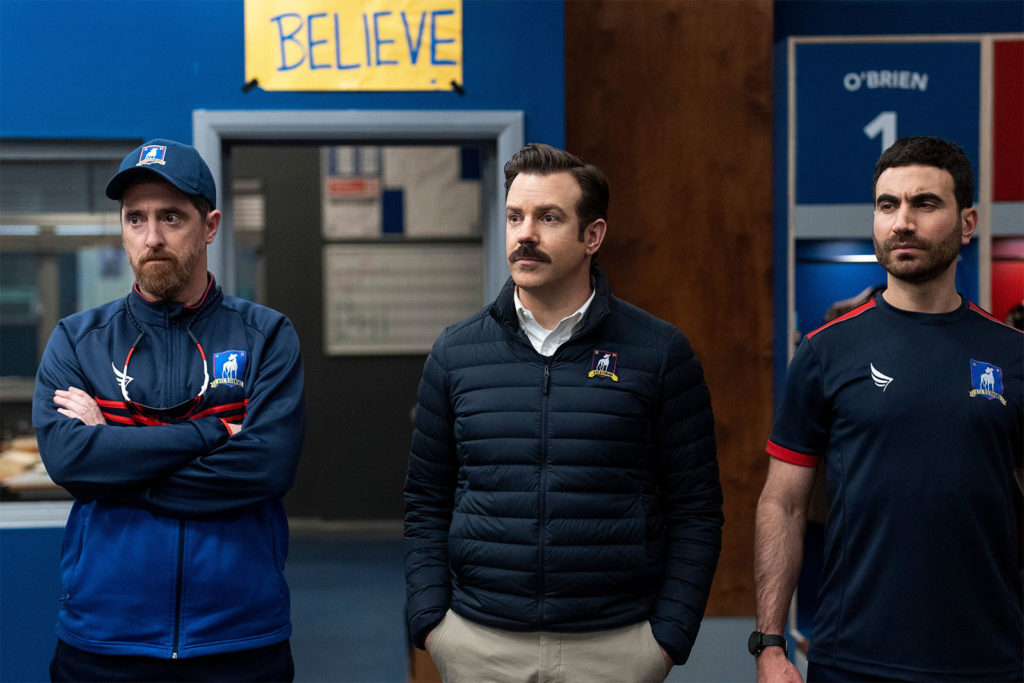When Ted Lasso graced Apple TV+ last year, few could have predicted the fan following and goodwill it would gain in a short time, as people flocked to its wholesomeness in the middle of a pandemic. Season one struck a chord with fans and critics alike, winning seven Emmys including lead actor, supporting actress and outstanding comedy series. The second season, in the meanwhile, has attracted both acclaim and controversy.
As Richmond AFC play the Championship aiming to get promoted back to the Premier League, we see the main characters getting adjusted to changes, such as Roy Kent (Brett Goldstein) adjusting to life after retirement as well as his relationship with Keeley (Juno Temple), while Jamie Tartt (Phil Dunster) flunks out of a dating show and his former club Manchester City, eventually approaching Ted Lasso (Jason Sudeikis) to return to Richmond. There are several other stories, such as Ted struggling with his resurgent anxiety and trying to commit himself to therapy with Dr. Sharon (Sarah Niles), Nate (Nick Mohammed) growing slowly disillusioned about Ted, and Rebecca (Hannah Waddingham) dealing with romance with a surprising partner as well as her feelings about her father following his passing.
As heavy as all that sounds, the second season is still as wholesome as ever. It is a lot more episodic than the first season, focusing on a wider range of characters and their journeys. It takes a look at the limits of the titular character’s positivity, and posits that not all people will respond positively to kindness. Some of the more standalone episodes, such as the Christmas episode and the Coach Beard (Brendan Hunt) centric episode, are delights that both push the show in new directions and affirms its core appeal.
However, the second season lacks the unifying element of football that tied all the episodes together.
Many viewers have criticized the second season for marginalizing the football aspect of the show, saying that it meandered too much without it. Fortunately, if you watch this season to the end, it becomes clear that seeds had been planted for an important development throughout the last twelve episodes. Jason Sudeikis had previously said that this season is like The Empire Strikes Back of the planned three-season show, and this turn of events definitely echo the turning point nature of the first Star Wars sequel.
Ted Lasso also gets deeper into its characters this season, exploring their trauma and grief. Most of the characters facing such issues get to work on them and make progress, thanks to their loved ones and, in Ted’s case, the support of Dr. Sharon.
Ted Lasso was never going to win everyone over.
It’s understandable why the show doesn’t focus so much on football, since it is primarily designed for American audiences. Also, many viewers who had binged the first season found the shift to weekly episodes jarring, giving them more time to dwell on each episode’s shortcomings. Nevertheless, the second season is a step in the right direction. If season three is indeed the last season, let’s hope Ted Lasso wraps things up in satisfying (and heartwarming) fashion.
